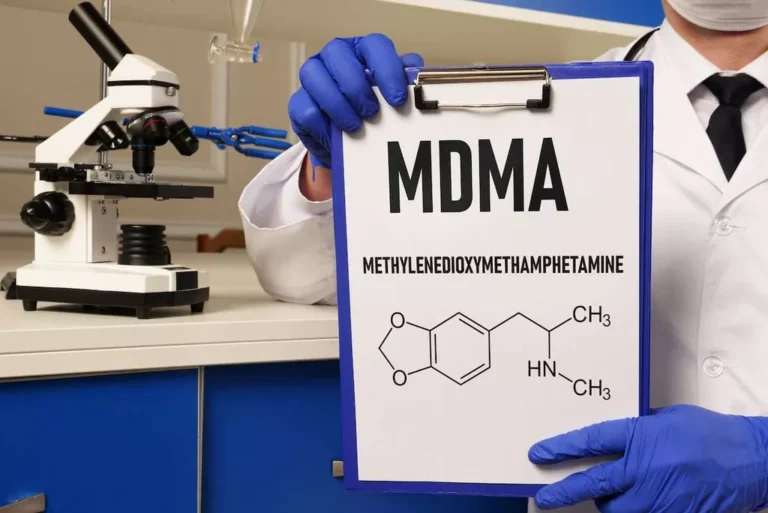
When they first use a drug, people may perceive what seem to be positive effects. Some people may start to feel the need to take more of a drug or take it more often, even in the early stages of their drug use. What makes certain individuals particularly vulnerable to addiction and others relatively resistant?
Cocaine Effects
Risk and protective factors may be either environmental or biological. Among the most intriguing of these mechanisms is elevation of the genetic transcription factor ΔFosB, a molecule that lasts for approximately 2 months and theoretically can promote neuron structural changes that have potentially lifelong persistence. The most important goal for the next decade is to translate the knowledge we have already gained, along with any future advances we make, into better treatments for addiction. A potential limitation of these approaches is that they focus on cocaine’s initial actions, not on the long-lasting changes that are present in the brain once addiction has been established.
Reduced drug use is a meaningful treatment outcome for people with stimulant use disorders
A typical dose of snorted cocaine is between 30 and 70 milligrams. These unpleasant effects often make you want to use the drug again. A cocaine binge is when someone uses cocaine cocaine addiction treatment repeatedly in higher and higher doses. The National Survey on Drug Use and Health reports that there are around 1.5 million current users of cocaine in the United States.
Short and Long-Term Effects of Cocaine Use and Addiction

This cycle can lead to cocaine use disorder, in which you have trouble controlling how much and how often you use the drug even when it has negative effects on your life. This makes you compulsively crave or use substances like cocaine. Unlike heroin and opioid drugs, there are no medications used to treat cocaine addiction.
According to the National Institute on Drug Abuse, around 68% of people seeking cocaine treatment regularly use crack cocaine. Reuptake is a process that normally modulates the action of the neurotransmitters by decreasing their concentration in the brain. When cocaine excessively increases the concentration of “feel good” neurotransmitters in the brain, the drug prolongs and amplifies the effects of these chemicals. Cocaine, also known as coke, is a powerful stimulant derived from the coca plant. It is abused by several methods, including snorting it through the nose, smoking it, and injecting it intravenously. Most importantly, treatment offers you the chance to learn how to manage your thoughts, feelings, and emotions without feeling like you need to use substances.
Short-term effects on the brain
- And they will try to determine the degree of your dependence and will suggest treatment options.
- Studies investigating sex and gender differences in cravings, relapse, stress response, and other features of addiction (see Sex Differences) support the need for tailored treatment approaches to address sex and gender-specific needs.
- We first summarize the clinical epidemiology of CUD and then follow with an overview of the neurobehavioral consequences of short- and long-term cocaine use.
- Cocaine’s immediate euphoric effects include a state of hyperstimulation, reduced fatigue, and mental clarity.
You may develop depression, unpredictable mood changes, paranoia, or even violent behaviors toward yourself and others. You could have hallucinations, meaning you see or hear things that aren’t there. In a 2021 national survey, https://ecosoberhouse.com/ about 4.8 million people in the U.S. ages 12 or older said they had used cocaine in the past year. The rate was highest in the age group (1.2 million people or 3.5%), followed by those over age 26 (3.6 million or 1.6%).

Additionally, baclofen, a GABA-B agonist, has shown promise in a subgroup of cocaine addicts with heavy use patterns. Antidepressant drugs are of some benefit with regard to mood changes experienced during the early stages of cocaine abuse. Medical treatments are also being developed to deal with acute emergencies resulting from excessive cocaine abuse. Frequent use of cocaine can cause you to develop a higher tolerance to the drug. A high tolerance means it takes more cocaine for you to feel its effects. This may lead to using greater amounts of it, which can impact your mental and physical health.

Mental health issues
This can contribute to poor decision-making and decreased self-awareness in people who are addicted to the drug. But with continued use, a person’s ability to exert self-control can become seriously impaired. The more dopamine molecules come into contact with receptors, the more the electrical properties of the receiving cells are altered. To keep the receiving cells in each brain region functioning at appropriate intensities for current demands—neither too high nor too low—the dopaminergic cells continually increase and decrease the number of dopamine molecules they launch.
- However, help and resources are available for people who are ready to take their life back.
- For example, you may need medication for the treatment of abrupt or severe changes in your blood pressure.
- This distinction often relies on determining the temporal sequences of mood symptoms and substance use, which is aided by following a patient longitudinally.
- Treatment can take place in an inpatient or residential center that provides room and board and around-the-clock supervision and support.
- Someone who uses cocaine frequently will develop a dependence on it, meaning they need to have it in order to feel normal.
While a medication that counters the powerful biological forces of addiction is essential, it will not be a “magic bullet.” People in recovery from addiction will always need support and rehabilitation to rebuild their lives. Presumably, effective psychosocial treatments for addiction work by causing changes in the brain, perhaps even some of the same changes that will be produced by effective medications. While very little information is currently available on the neurobiological mechanisms underlying psychosocial treatments, this is a topic of great interest.

What are the treatments for cocaine use disorder?
Synthetic cannabinoids, also called K2 or Spice, are sprayed on dried herbs and then smoked, but can be prepared as an herbal tea. Despite manufacturer claims, these are chemical compounds rather than “natural” or harmless products. These drugs can produce a “high” similar to marijuana and have become a popular but dangerous alternative. Two groups of synthetic drugs — synthetic cannabinoids and substituted or synthetic cathinones — are illegal in most states. The effects of these drugs can be dangerous and unpredictable, as there is no quality control and some ingredients may not be known. If you’re worried about your cocaine use and want help, you have options.






